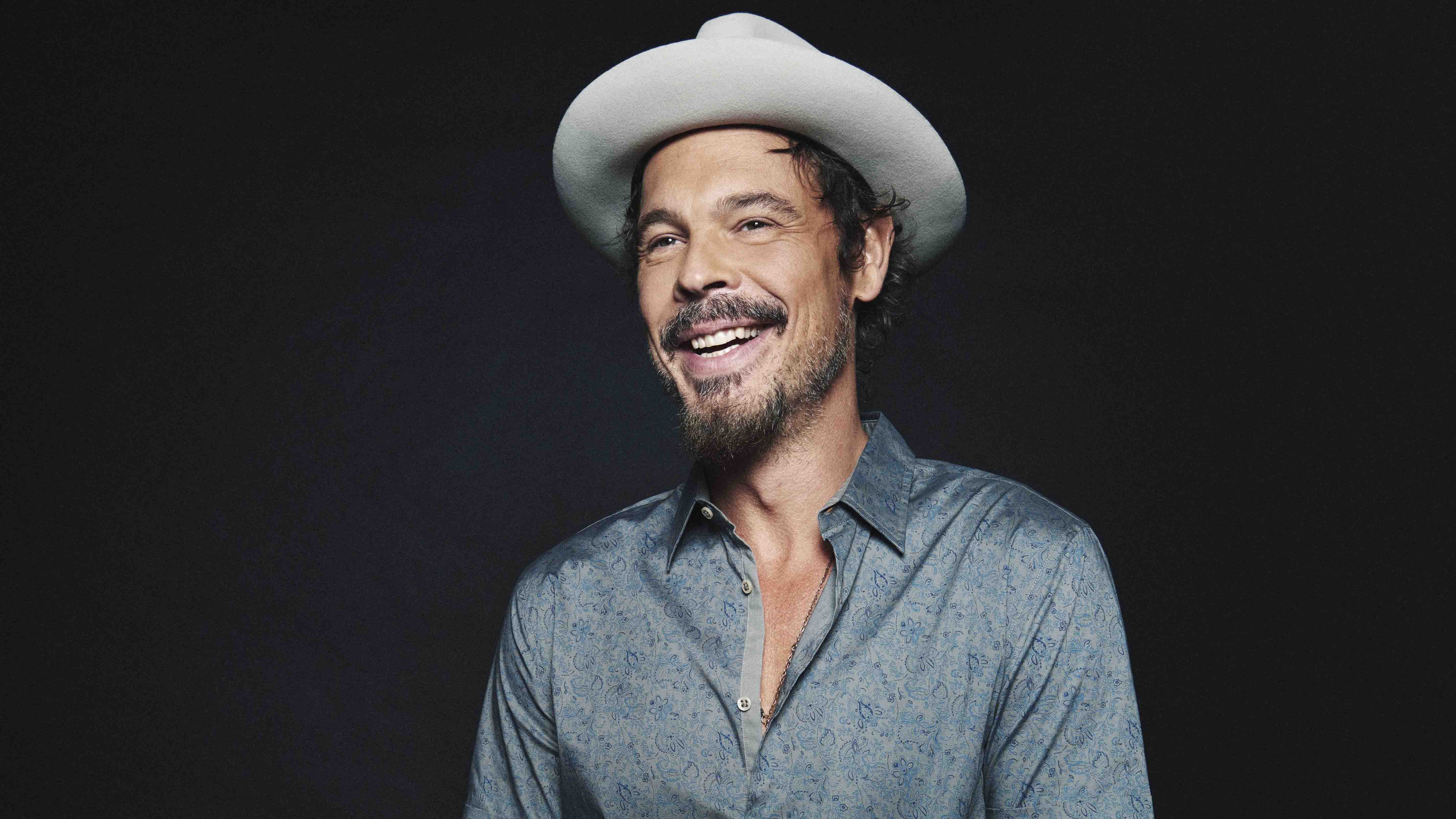
Grace Street
We already suggested Ian Thornley could be one of the great unsung heroes of rock guitar back when we spoke to him last year about his excellent solo album, Secrets. And as the Toronto native returns to full band duties with Big Wreck on their fifth release Grace Street, the claim is undeniable.
It’s an album that’s full of his versatility as a writer; from Zeppelin-sized workouts (Digging In) to full-blown instrumental fusion (Skybunk Marché) and low-key haunting acoustics (Useless). There’s always a tangible willingness to evolve and surprise that makes us wonder if Big Wreck are actually a stealth prog-rock band.
We are getting away with some pretty interesting stuff - we’re not playing 4/4 pop tunes here
“I don’t really know, man,” Ian ponders as we speak midway through Big Wreck’s Canadian tour, which finds them back as a four-piece following guitarist Paulo Neta’s departure in January.
“I start thinking about it sometimes, and then I get worried and I stop thinking about it. We’ve never really broken through as that. Our audience has always grown, that’s for sure. Like this tour, most of these shows have been sold out.
“That’s a great feeling, but we are getting away with some pretty interesting stuff - we’re not playing 4/4 pop tunes here. Even though I love a lot of that. Maybe it’s a rock band that’s been dipped in some prog, but I hear as much blues in there… even Abba are a huge influence on me. It’s all fair game.”
That attitude reflects Ian’s open-minded approach as a listener.
“I don’t really discriminate beyond good and bad,” he concurs. “I never say, ‘I don’t listen to that kind of music’; I’ll give anything a shot if it’s good.”
As a result, there’s a rich tapestry of influences to be heard in Ian’s playing, writing and inventive approaches to production. There’s also the impact of a musical background that didn’t actually start in guitar at all, but we’ll get to that.
“I’m a firm believer that you are what you eat as far as music goes,” he adds. “So the stuff that goes in is definitely going to come out.”
Indeed, such is Ian’s appetite for music, the only problem we had was ending the list. But here’s a dozen of his landmark listens to bite into...
Don't Miss
Ian Thornley: my top 13 tips for guitarists
Ian Thornley talks Secrets, guitar gear and nearly joining Velvet Revolver
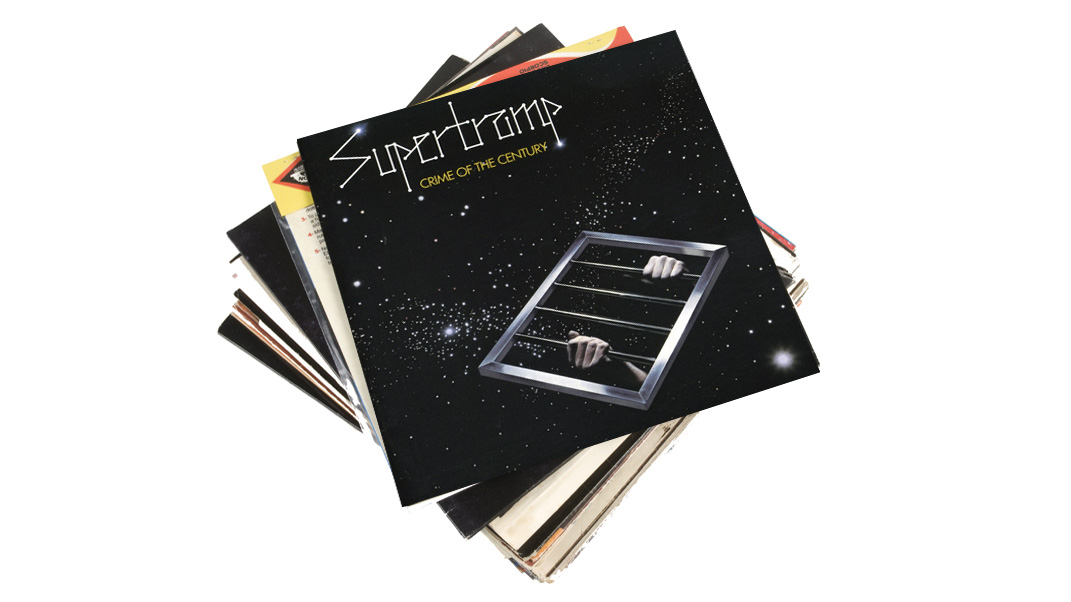
1. Supertramp - Crime Of The Century (1974)
“My mum was a big Supertramp fan, and I think Crime was the first one that really resonated with me. And I’m talking really young, I was maybe four or five. It continues to this day: I go to listen to that thing and it is perfect.
“I’ve actually spoken with Roger Hodgson about a lot of the music, and I love a lot of their stuff, most of it, and in particular the ones that he’s written. There’s something haunting about his voice and his melodies. But if I had to pick one it would be Crime Of The Century, top to bottom.”
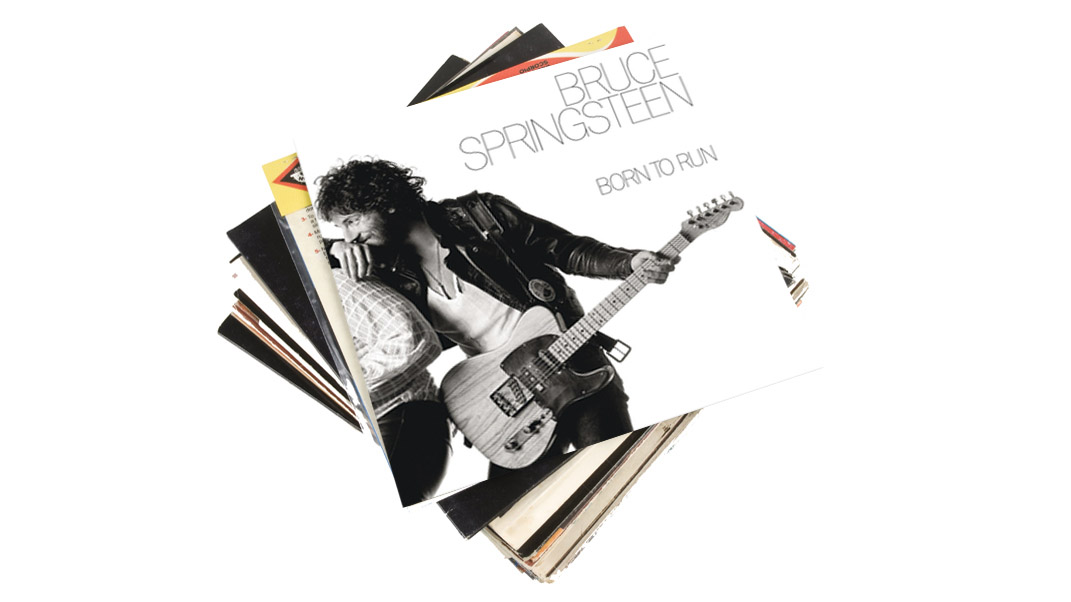
2. Bruce Springsteen - Born To Run (1975)
“My dad was a huge Springsteen fan, and Born To Run was huge for me too - Jungleland, Thunder Road… all the songs on it. As was [1978 follow-up] Darkness On The Edge Of Town. And Born In The USA is often overlooked because it was so big and successful, but that’s a masterpiece.
“It blows my mind that he could keep evolving and writing. He’s a huge influence. But if I had to pick just one it would be Born to Run. I’m an enormous fan - it’s sickening how much I love Bruce Springsteen!”
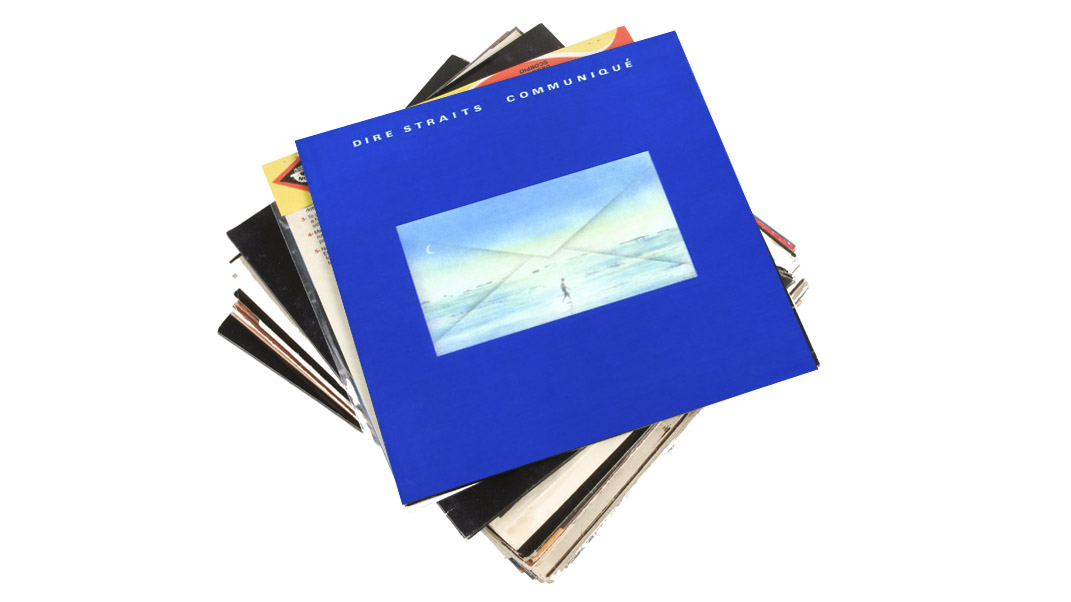
3. Dire Straits - Communiqué (1979)
“It’s either the first one or Communiqué… but Brothers In Arms is hard to beat, too. It’s so tough because these artists have put out so many great records. Knopfler is a big player for me, even now with the fingerstyle influence when I use a pick I still use my middle and ring fingers all the time. I’ve sort of amalgamated that into other guys I’ve tried to rip off!
“I started playing piano when I was about five, and then I didn’t pick up guitar until I was about 16. So it was a natural thing, and this pick thing felt weird - I kept dropping it in the soundhole of the guitar. I already had dexterity in my right hand from playing piano, and it all came pretty quickly after that.
“So when I’m working out theory things, I still picture a keyboard in my head. And I’m still using keyboards all over the records but it effects a lot of things. Like if I want to use that and jump up to that note, what are the interesting chord changes I can throw in there, I’m thinking keyboard. I’m not thinking fretboard.”
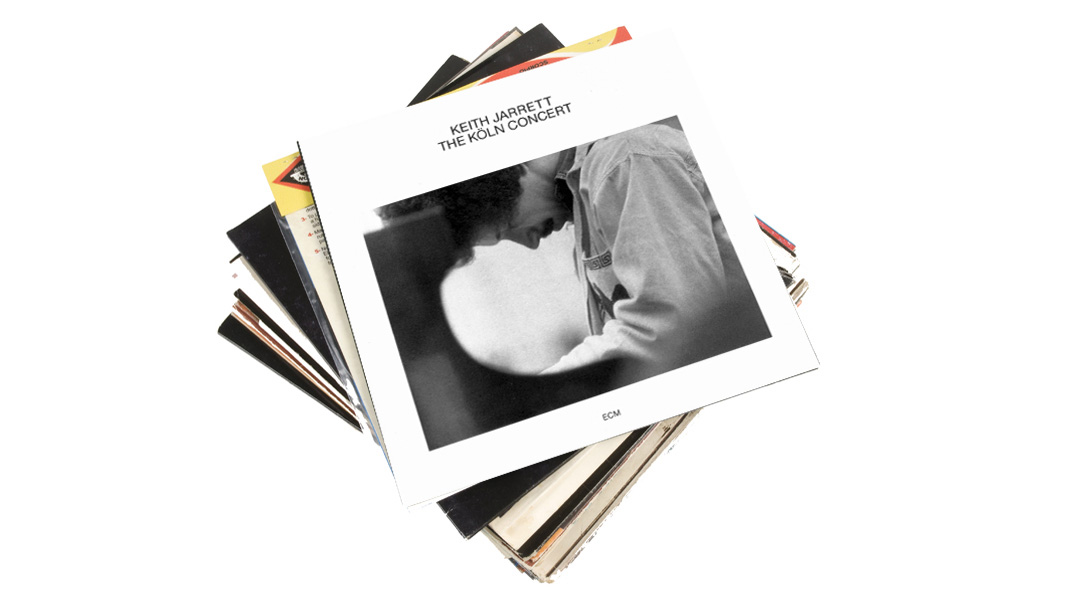
4. Keith Jarrett - The Köln Concert (1975)
“I was listening to this the other night. It’s one of the most important records to me. As a piano player when I was a kid, I learned the first side of it, which was about a 20-minute long piece of music. I was so, so obsessed with it.
“For a guy with such a vocabulary, it’s more about melodies that you can really sink your teeth into. I’ve been to see him several times, and the fact that I know it’s complete and pure improvisation, and he really does consider it channelling, that’s what puts him as a musician on a very different level than the rest of us.
“That guy’s a genius because he’s just sitting down at a piano and plugging in - that’s what’s coming out of him. That record is perfect and beautiful, and obviously just a snapshot of Keith on an afternoon in Germany. Beautiful.”
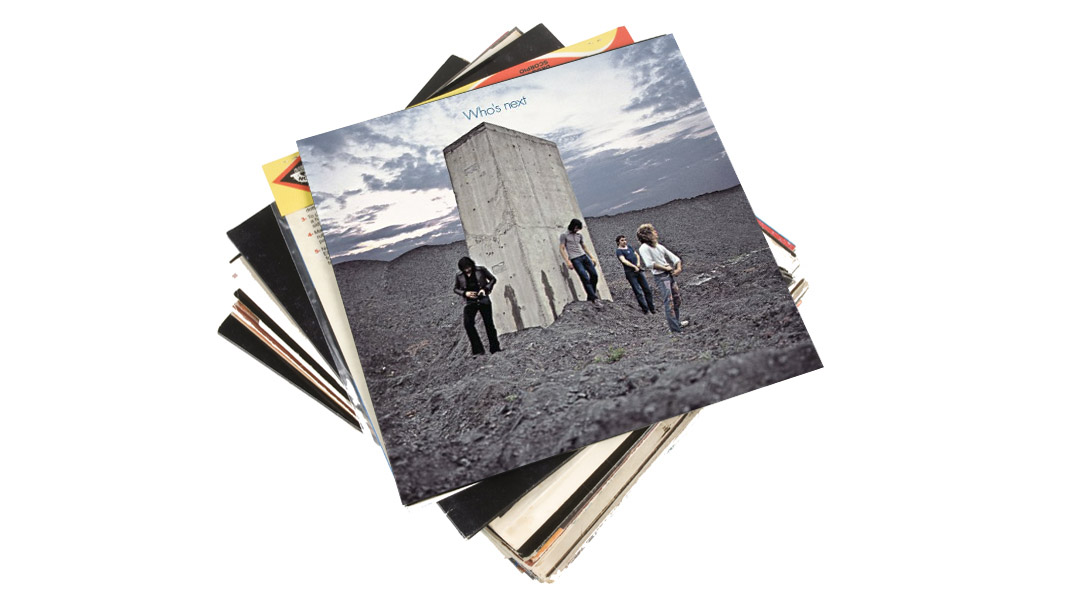
5. The Who - Who’s Next (1971)
“Just a perfect, magical record. As a lot of the Who stuff is. But you can’t beat this. It has to be there.
“When I was young, my father used to listen to FM radio while he was drawing and painting. He had a little studio room in the house where I grew up with astro turf fake grass on the floor of it. Because it was kind of an add-on to the house, but that’s where he had his drawing desk and his radio.
Who’s Next is all cylinders firing. They sound like they’ve just got off the road and they’re just really cooking
“It was left on one day and I remember walking by the room and stopping, just being transfixed completely by the mid-section of Won’t Get Fooled Again. That keyboard breakdown just grabbed me, pulled me in and hypnotised me and spun me upside down. ‘What was that and how can I recreate it, always and forever?!’ And that’s through a little one-speaker transistor radio.
“From then, you can listen to Baba O’Riley and it has the same sort of thing. You can hear me ripping that idea through all my albums; there’s stuff on there where you’re going to think, ‘Well, that’s Pete [Townshend]’s kind of thing.’ As a musician, a songwriter and composer… certainly his guitar playing is great, too, and I love a lot of his solo career stuff, but Who’s Next is all cylinders firing. They sound like they’ve just got off the road and they’re just really cooking. And Roger Daltrey, I love the sound of his voice… everything about that record.”
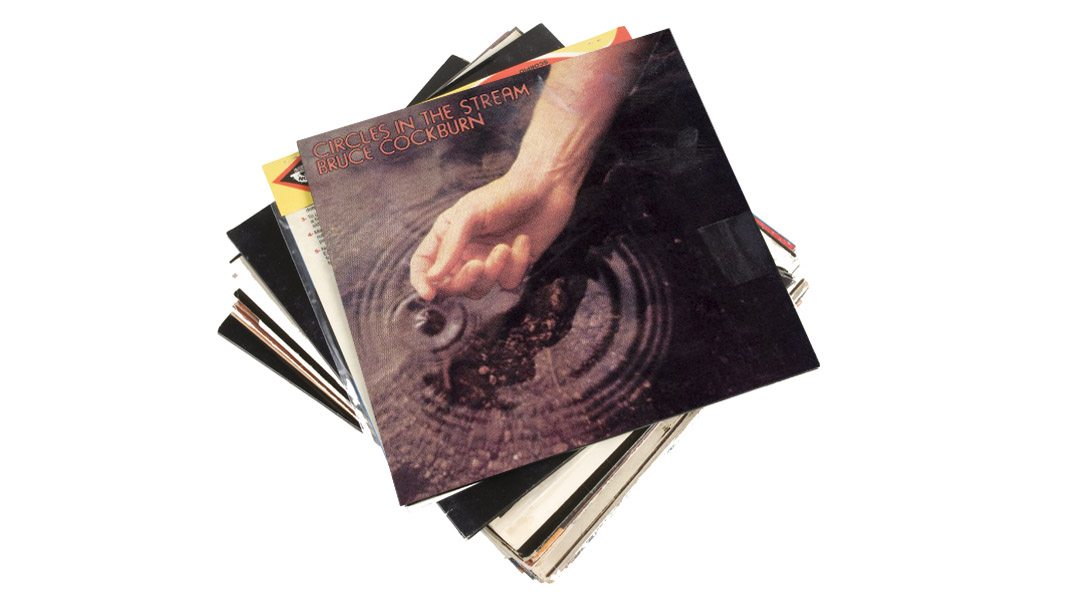
6. Bruce Cockburn - Circles In The Stream (1977)
“That’s another record that is huge for me. I like a lot of Cockburn’s records, and when I first started playing guitar I was a fingerstyle guy and I always wanted to be Bruce Cockburn; he’s a wonderful fingerstyle player.
“But this record is actually a live album, and I wore out it. I don’t know how many cassettes and CDs I went through of that album.”
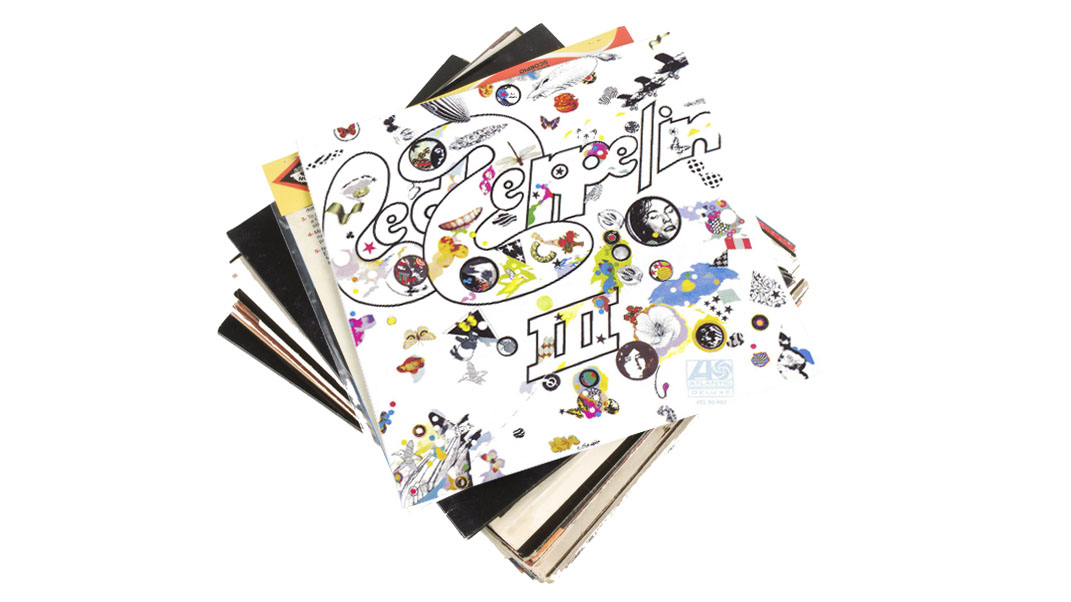
7. Led Zeppelin - Led Zeppelin III (1970)
“The first Zeppelin record that pulled me in, and actually the record that got me into listening to heavier music, was Led Zeppelin III.
“My parents were hippies, and sort of folkies, outside of the Springsteen, the Abba or Supertramp. In the '60s, my parents were in a folk band together. There was a lot of that hippie dippy stuff floating around, and the only Zeppelin record in a vast collection of LPs that we had was Led Zeppelin III.
For so many reasons, I could talk to you for an hour about Page’s influence
“I must have been 15, and I fell in love with the second side - That’s The Way, Tangerine… the really acoustic-tinged stuff. I didn’t flip it over at first, and then once I did it was, ‘What’s this?!’ [hums Immigrant Song riff] and maybe it’s because I was a libido-driven hormonal teenage boy full of angst and all kinds of shit going on, it appealed to me on that level as well. It was very visceral.
“And then I explored all of Zeppelin from there and I just love it, I love all of it. It’s in my musical DNA, for sure. And for so many reasons, I could talk to you for an hour about Page’s influence.”
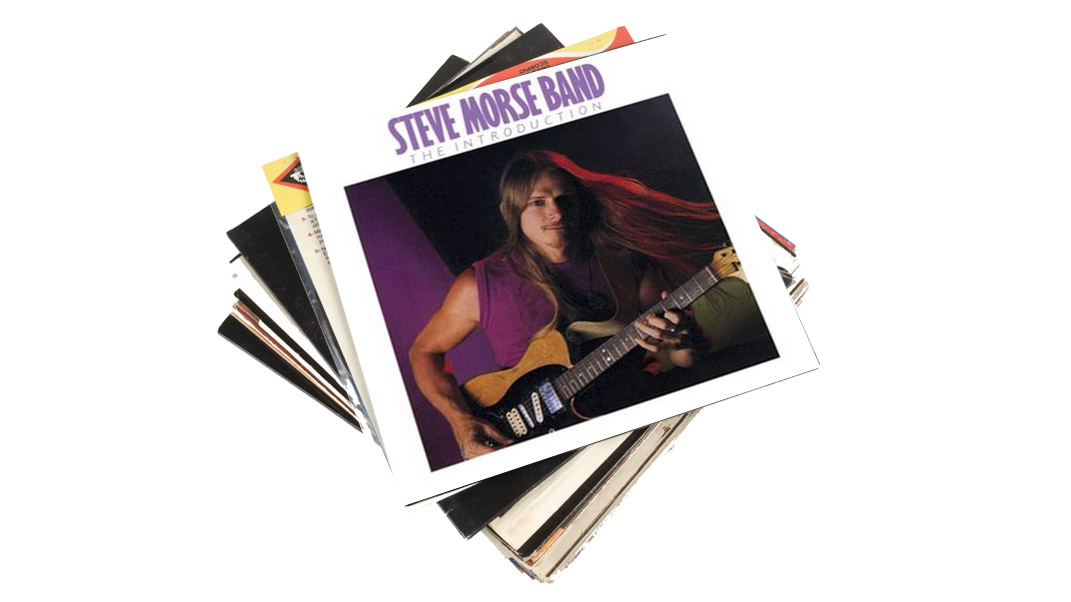
8. Steve Morse Band - The Introduction (1984)
“During the summer, I’d get a job when I was 12, 13 and 14 and I was working as a coffee boy. They had this in the dub room at a recording studio in Toronto. The dub room had all these tape machines, and they’d do the jingle, record the jingle and we’d have to dub a bunch of quarter-inch tape reels of the [advertising] spot and send it out to the different radio stations.
“That was my summer job, and there were always tunes blasting when there wasn’t something to do. Somebody had put on The Introduction, and On The Pipe was the track they’d play in particular. I thought, ‘What is this?!’ because I’d never heard a guitar sound like that.
“It was aggressive with the way he was picking, you could almost hear him gnashing his teeth. It was an aptly titled record for me as it was my first Steve Morse thing. Of course when I went to college [Berklee College Of Music, Boston] I started sinking my teeth into a lot more.
“Any time I do an alternate-picked run, I’m coming from [Steve’s influence]. I’ve done countless hours playing his stuff and trying to get things to sound like that. How deep you can go on the Dixie Dregs alone [Morse’s first band] is just amazing, then there’s the Steve Morse Band.
“The amount of music that has come out of that guy is amazing, and not all rock stuff either. I can’t remember who said it, but it’s ‘using a Ferrari to drive to the corner store to get some milk’. It’s kind of like that. I’ve always felt like that with Steve Morse and Deep Purple.
“The amount of musical knowledge that’s not getting used when you’re soloing in G Dorian - nothing against Ritchie Blackmore, but they’re not even in the same [league]… and I’ll probably get a lot of flack for that, but it’s just the way I feel as a musician and as a guitar player. And I love Blackmore; I think he’s great and he’s got his own thing. I’m not sure what his thing is now, but certainly back then, he had his own thing going and it was very cool. It’s just that Steve is playing a different game to a Blackmore, or any of the blues-rock guys. Steve has forgotten more about musical theory than most of us will ever learn.”
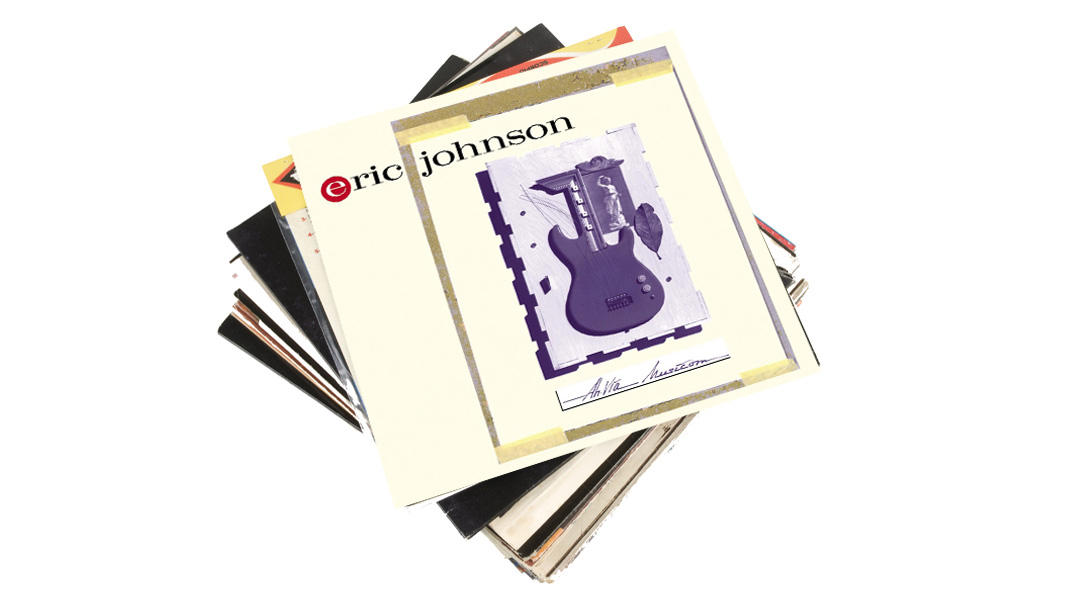
9. Eric Johnson - Ah Via Musicom (1990)
“Oddly enough, it’s not for the songs; it’s just for the playing. The songs aren’t really my cup of tea musically - it’s just that the guitar playing and tones are so exceptional that I look past the easy listening kind of songwriting.
“And Eric’s a great guy who knows his shit, he loves what he loves and he does what he does.”
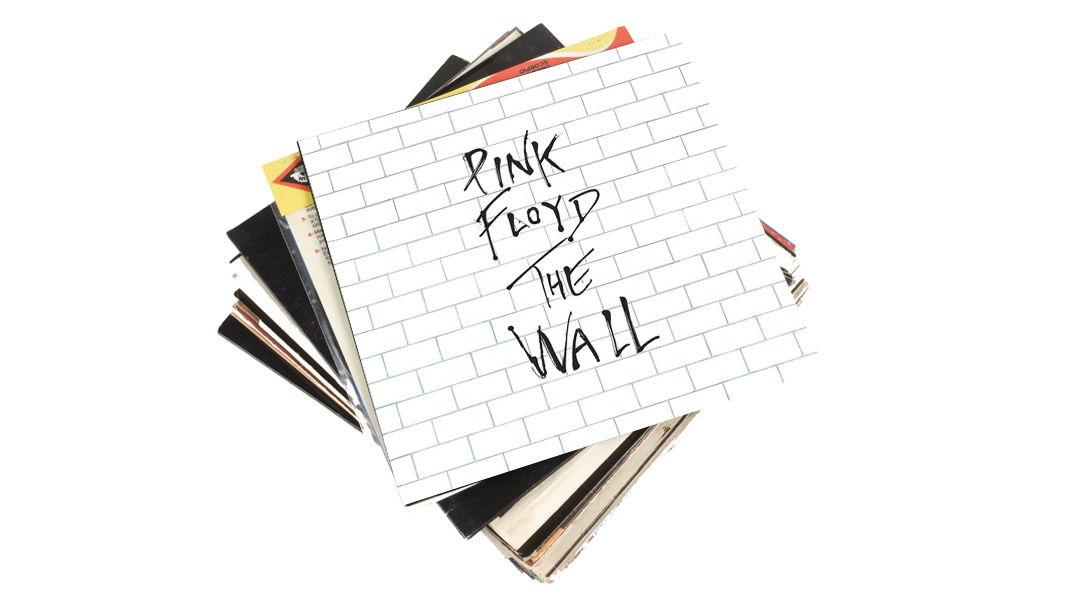
10. Pink Floyd - The Wall (1982)
“Dark Side Of The Moon or The Wall - they’re both perfect. I’ll listen to The Wall from top to bottom if I have a flight and it lines up with enough time for me to get through it. It’s still astounding how great that is.
“Dark Side will always have a special place in my heart, too, because it’s something you can really sink your teeth into, but it’s also something wonderful if it’s on in the background. Both are equally important, so I wouldn’t be able to pick just one.
“Something tells me that if David Gilmour was a keyboard player he would have the same impact, because I think it’s him as a musician. When he takes a guitar solo, you can sing it, and I would rather be that than yet another guy playing a lot of notes. I’d rather be the guy that played the solo on Comfortably Numb, or any of his solos. It’s his accoutrements, too - a little bendy thing that he’ll throw in.
David Gilmour's very rarely saying, ‘Look what I can do.’ He’s always saying, ‘Here’s how I feel and here’s what the music wants.’
“He’s just a fantastic musician, and it seems that his heart is in the right place - he’s very rarely saying, ‘Look what I can do.’ He’s always saying, ‘Here’s how I feel and here’s what the music wants.’ His tones, his parts are still wonderfully inventive. It doesn’t have to be ‘technical’, that’s the point. Just great music.
“It’s his touch as well - very unique and incredibly important. He’s one of the guys on the top of the mountain when it comes to playing a melodic guitar solo. You’ve got that and then Hotel California - certain melodic guitar solos that just never go away.”
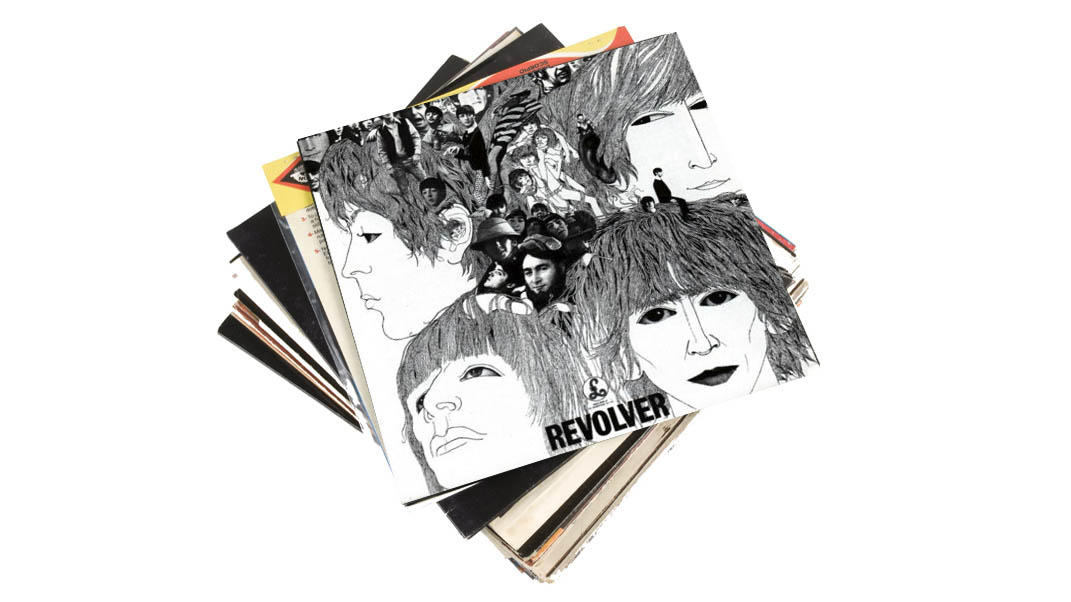
“I haven’t even mentioned The Beatles until now! So any Beatles record - but I always go back to Revolver. For some reason I always arrive at Revolver. But then there’s Abbey Road and The White Album… you can’t pick one Beatles album. Just say Beatles!
“I don’t even remember when they first came into my life; they’ve always been there. There are certain melodies and certain things that will be there forever - they’ll haunt me forever. They’re so ingrained, I don’t know what magic they tapped into, and it's not even something I’m striving for because it seems so mythical, so perfect that I’ll never achieve that.
“And it wasn’t even that long that they were doing their thing, either; if you think about it in today’s standards, I’ve had a longer career that The Beatles did, and those guys were putting out records every six months. And they were all just beautiful and complete, with each completely different from the last. I don’t know what that magic is, but it certainly is magic. Extremely important to me.”
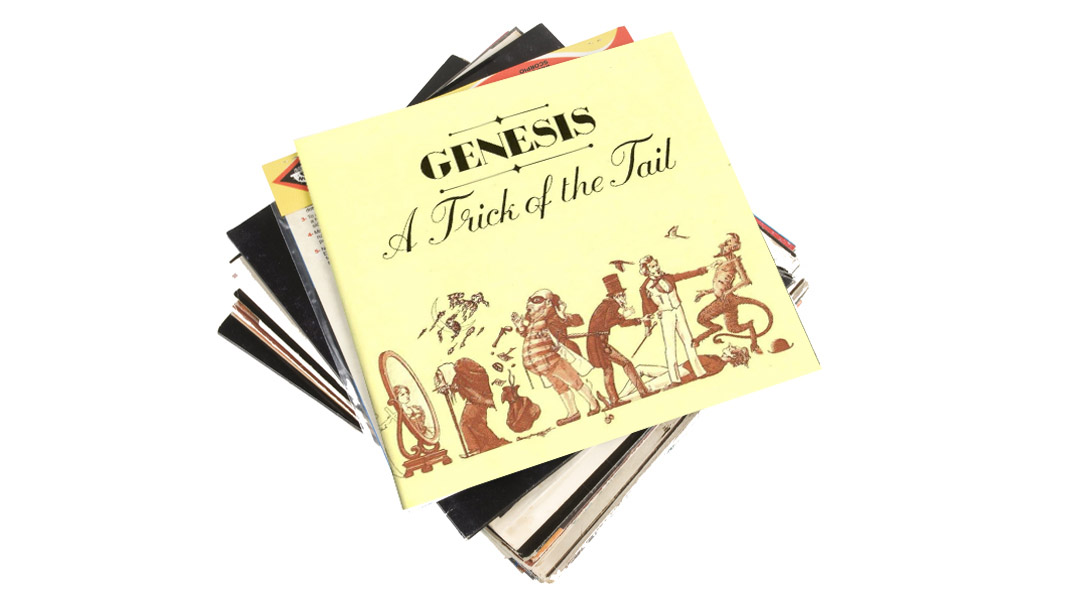
12. Genesis - A Trick Of The Tail (1976)
“That record is so big for me, and you can probably hear a lot of that in my music. There’s a lot of the '70s prog that I dipped into. Fragile from Yes was big for me, too.
It’s the prog stuff that’s steeped in melody, that has the Lennon/McCartney influence, this Beatles thing that goes through it
“It’s the prog stuff that’s steeped in melody, that has the Lennon/McCartney influence, this Beatles thing that goes through it. There’s cuts on this that have a beautiful haunting acoustic vibe, but then there’s a rockier side to it as well - Robbery, Assault And Battery is on there.
“Being a keyboard guy, I love the stuff that’s outside but it’s just inside enough that it’s melodic and pulls me in. Things that go too far outside tend to turn me off sometimes. There are a few guys that can do it and it still feels like they’re speaking the same language. Like Scott Henderson, he can stay outside all day long and I’d still know he’s speaking music to me. As opposed to math or something.
“With Tony Banks, there’s interesting time signature turns and key changes here, but it always seems to land and come through. I don’t know if he’s classically trained, but there’s something in there that just seems classically rooted and melodically driven. Not just, ‘Look how cool and messed up this is,’ there’s always the search for a beautiful melody.
“And Phil Collins… Hello I Must Be Going is another important album for me. I forgot to mention that one, too! I don’t know why he gets such a bad rap. Because when Phil Collins started doing [the Disney Tarzan soundtrack] it was like, come on, that doesn’t take away from everything else that he’s done. Which is immense. His talent is boundless. Some of the songs that guy has written, come on! Incredible drummer, too.
“Peter Gabriel, how could I forget him. Pretty much anything by Peter Gabriel. I’m a huge fan of everything that he’s done. I think he’s incredibly courageous in his creativity, and an unfairly gifted singer.
“And we haven’t even gone down the Sting path, either. The Police are just huge for me - you can hear that through my music. There’s too much… and a lot of the people I’ve mentioned are from the UK, I wonder what that means. U2 as well, we’ve got to get them in there - The Unforgettable Fire, The Joshua Tree… can we just keep going? [laughing] It’s supposed to be 10, but there’s no way, man!”
Don't Miss
Ian Thornley: my top 13 tips for guitarists
Ian Thornley talks Secrets, guitar gear and nearly joining Velvet Revolver

Rob is the Reviews Editor for GuitarWorld.com and MusicRadar guitars, so spends most of his waking hours (and beyond) thinking about and trying the latest gear while making sure our reviews team is giving you thorough and honest tests of it. He's worked for guitar mags and sites as a writer and editor for nearly 20 years but still winces at the thought of restringing anything with a Floyd Rose.